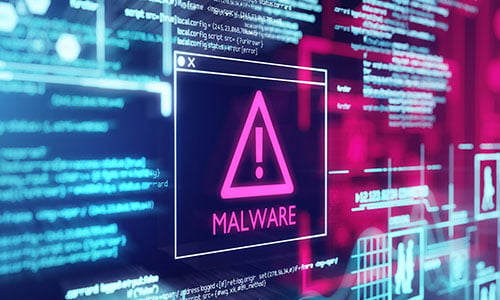
You’ve heard of viruses infecting your computer or other device, but how does it get there? “Malicious software”- or malware - is often the result of a scammer trying to gain access to your computer through a malevolent link, pop-up or attachment.
Malware is any software a scammer installs on your computer or other device without your consent. Criminals can use this software to access and control your computer, giving the scammer the ability to crash your system, obtain your personal information, send spam from your address, or even commit fraud. Skilled cyber attackers create malware, and seek to gain from your loss.
Computer viruses have been infecting devices since the 1970s, and don’t seem to be leaving any time soon. One of the most common forms of malware is called the “Trojan horse,” which works by the malware disguising itself to infiltrate a system. It appears to be a legitimate tool and serves to trick users into installing it before accomplishing its malicious goals.
Protecting yourself from malware may sound like a lost cause, but there are many options available to help you stay secure.
Tips to stay safe from malicious software:
- Keep your security software updated. In addition, set your software, internet browser, and operating systems to update automatically.
- Don't open attachments in emails unless you are expecting an email and are familiar with the sender. Attachments can contain malicious programs or give attackers access to your computer.
- Download and install software only from websites you know and trust.
- Visit websites by directly typing the URL into the browser instead of clicking on an email link. Look for the “HTTPS” in the browser. The “S” stands for secure and can reaffirm that the site you are visiting is reputable.
- Turn your pop-up blocker on and never click within a pop-up.
- There are many helpful forms of cyber security software that are always changing and updating to protect you against the latest threats. Be sure to update your software and systems to prevent falling for a preventable attack.
- Back up your data regularly. In the event you need to restart or reset your device, you won’t lose everything you had ever created.
Malware comes in many different forms, and each one has its own way of infecting and possibly damaging your devices. Avoid suspicious emails, links, and websites to help protect you from malware and other types of online fraud. Look out for yourself and your family, because viruses don’t limit themselves to any one season or location. Malicious software can affect anyone and can even go unnoticed for some time on your device.
If you think your computer has malware, contact a representative at the Federal Trade Commission and file a complaint at www.ftc.gov/complaint.